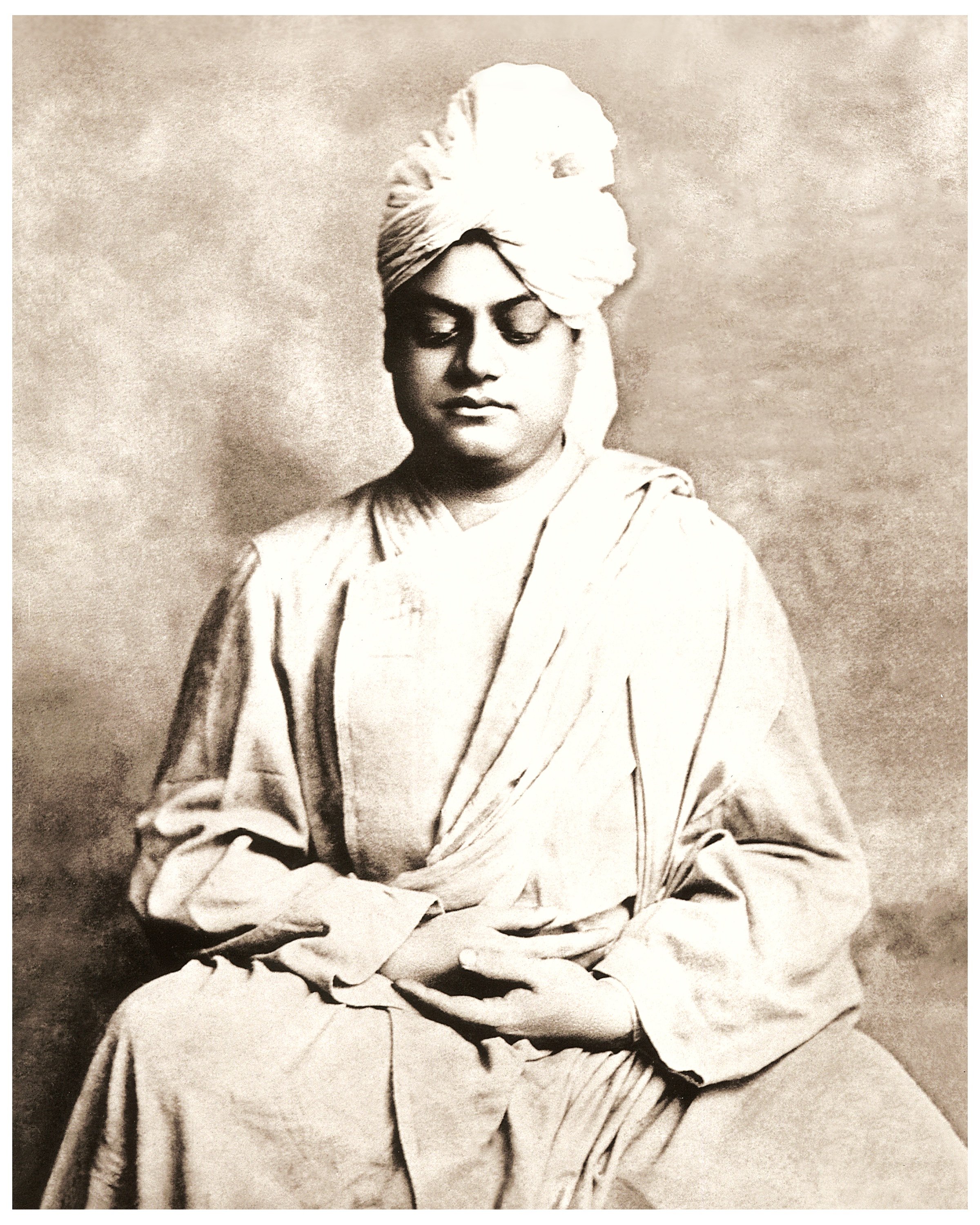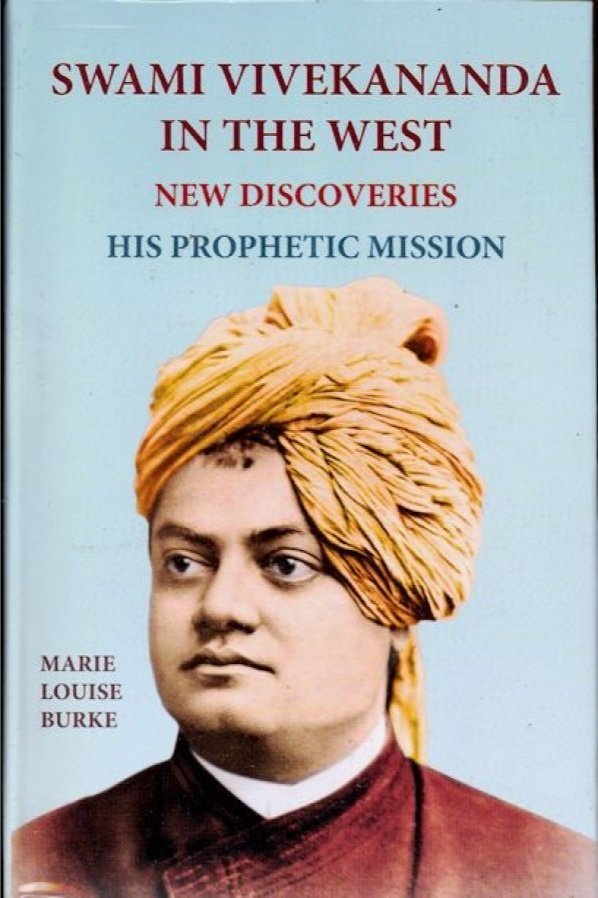Swami Vivekananda
“Each soul is potentially divine. The goal is to manifest this Divinity within by controlling nature, external and internal. Do this either by work, or worship, or psychic control, or philosophy — by one, or more, or all of these — and be free. This is the whole of religion. Doctrines, or dogmas, or rituals, or books, or temples, or forms, are but secondary details.”
Short Biography
Swami Vivekananda, was the chief monastic disciple of Sri Ramakrishna and a world spokesperson for the liberal and universal teachings of Vedanta. He is remembered for introducing the teachings of Vedanta to the Western world at the World Parliament of Religions in Chicago in 1893. He represented Hinduism at the 1893 World’s Parliament of Religions and his opening words, “Sisters and brothers of America” brought the crowd to its feet. Subsequently, he was invited to speak all over America and Europe.
There was an enthusiastic response to his message and personality, marking the beginning of the Vedanta movement in the United States and the founding of centers in many of the major cities of the country. Our Vedanta Society of New York was the first Vedanta center started by Swami Vivekananda in 1894. Swamiji’s main emphasis was on the direct experience of truth. He believed that religion is not found in books, theories, dogmas, talking or reasoning, but in being and becoming. He believed that it was best to teach universal principles rather than personalities, focusing on Vedanta philosophy rather than Sri Ramakrishna.
After his first visit to the West, Swami Vivekananda went back to India and founded the Ramakrishna Order at Belur outside of Kolkata in 1898. When he returned to the United States a few years later, he was accompanied by his brother monk Swami Turiyananda. Other direct disciples of Sri Ramrakrishna, Swamis Saradananda and Abhedananda, also followed Swamiji and taught widely. Vivekananda, a tireless teacher and writer, was a man with a great spiritual presence and tremendous intellect. He wrote poems and hymns in Bengali, English and Sanskrit, some of which are sung daily in Vedanta centers worldwide. He was ahead of his time in encouraging women and Westerners to not only practice Vedanta, but to be leaders.
Vivekananda’s main teaching in the West, and in India, is Practical Vedanta. By this, he stressed that religion needs to be intensely practical and carried into all areas of our lives. The primary message of Vedanta is one of oneness and that our human purpose is to realize our divine nature. Through his teachings on the four yogas, the harmony of religions, divinity of the soul, and serving humanity as God, Vivekananda gave spiritual aspirants paths to that realization. He was a spiritual genius of commanding intellect and power, who crammed immense labor and achievement into his short life (1863–1902). He made major contributions to both world culture and Indian culture, and his legacy continues to inspire people to this day.




